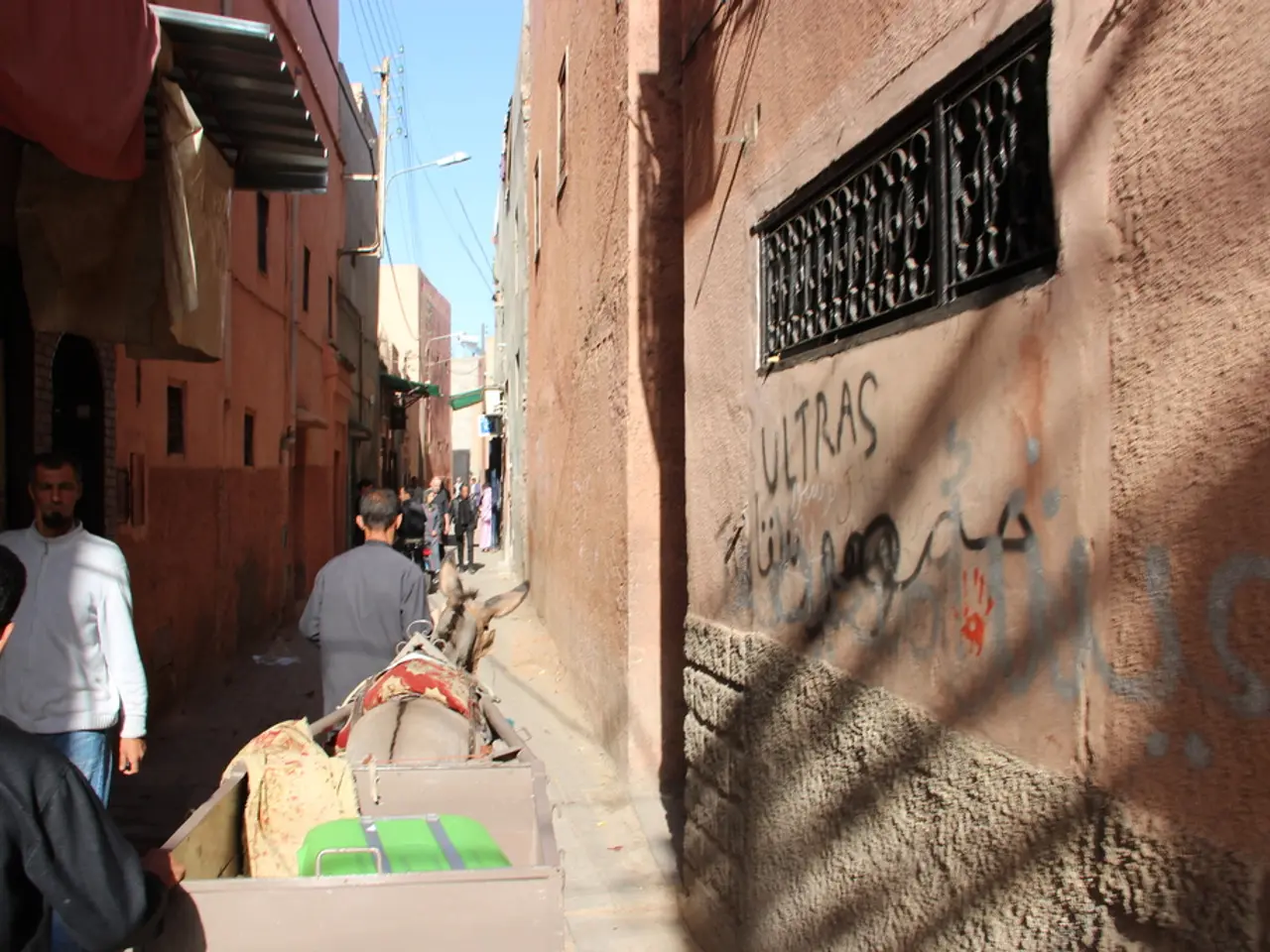International body denounces fresh Israeli settlement construction and assaults by settlers in the occupied West Bank
In the midst of the ongoing Israeli-Palestinian conflict, the humanitarian situation in Gaza is deteriorating rapidly. Famine conditions, mass displacement, and severe shortages of essential supplies are plaguing the region, with aid delivery remaining insufficient due to Israeli policies that restrict the flow of humanitarian assistance.
Famine Conditions and Mass Deaths
The United Nations (UN) and humanitarian agencies have confirmed that Gaza is experiencing famine in many areas, particularly Gaza City. Widespread hunger, acute malnutrition, and mass deaths have been reported, with hospitals overwhelmed and malnutrition-related deaths, especially among children, on the rise. Families are forced to share extremely limited food, sometimes a single cucumber or piece of bread among multiple members [1][3][4].
Insufficient Aid Flow
Despite the urgent needs of 1.9 million Palestinians displaced and enduring critical shortages, aid entering Gaza remains a small trickle, far below what is needed to prevent starvation and suffering. Israeli authorities have blocked or limited aid deliveries under a strict blockade policy, worsening the crisis [1][3].
High Casualties Related to Aid Distribution
Since May 2025, at least 1,373 Palestinians have been killed while seeking food aid, including around "Gaza Humanitarian Foundation" (GHF) distribution sites, which replaced some UN aid functions. Israeli forces and contractors have been accused of opening indiscriminate fire at civilians seeking aid, causing numerous deaths and injuries, and rendering aid sites highly inaccessible to vulnerable groups [2][5].
Forced Displacement and Deteriorating Conditions
The Israeli military's intensification of attacks in northern Gaza has led to orders for Palestinians to relocate to certain areas (e.g., Al-Mawasi), which remain unsafe and lack access to essentials like food, water, electricity, and shelter. Over 90 percent of Gaza’s population has been forcibly displaced, compounding the humanitarian catastrophe [1][2][4].
International Humanitarian Response Challenges
Humanitarian organizations report running low on supplies inside Gaza due to the blockade and fuel shortages but are attempting to pre-position aid stock outside Gaza for prompt distribution once access is restored. However, new Israeli measures threaten to ban major aid organizations, which risks further limiting aid operations in the region [3][5].
Condemnations and Calls for Action
UN experts and multiple organizations have described the blockade and restrictions on aid as contributing to a potential war crime and genocide, calling for the immediate dismantling of the GHF and restoration of UN-led aid mechanisms. The UN Secretary-General and other humanitarian leaders have repeatedly emphasized the urgent need to end the blockade and ensure free passage for humanitarian aid to prevent further loss of life [2][4][5].
Meanwhile, in the Israeli-occupied West Bank, the Israeli government's plan to build over 3,000 homes for Israeli settlers has sparked controversy. The UN Human Rights Office has condemned the plan, stating that it effectively bury the idea of a Palestinian state [6]. The Palestinian Ministry of Foreign Affairs has also condemned the attacks, stating that they are a direct result of incitement by the Israeli occupation government [7].
As the situation in Gaza continues to worsen, it is clear that urgent international attention and action are needed to lift restrictions blocking vital humanitarian assistance and to protect civilians.
References: [1] https://www.aljazeera.com/news/2025/5/15/gaza-crisis-palestinians-urge-un-action-as-death-toll-rises [2] https://www.reuters.com/world/middle-east/israel-palestinians-gaza-crisis-un-condemns-israels-plan-build-settler-homes-2025-05-16/ [3] https://www.amnesty.org/en/latest/news/2025/05/israel-gaza-crisis-un-must-act-to-halt-famine-and-protect-civilians/ [4] https://www.bbc.com/news/world-middle-east-57324394 [5] https://www.hrw.org/news/2025/05/17/israel-gaza-crisis-palestinians-face-dangerous-shortages-aid [6] https://www.unocha.org/middleeast/palestine [7] https://www.maannews.com/Content.aspx?id=858012
- The sustained coverage of war-and-conflicts in Gaza, particularly the increasing famine conditions and mass deaths, falls under the category of general-news.
- The obstruction of aid delivery by Israeli policies is a subject of concern in the realm of policy-and-legislation and politics.
- The high casualties related to aid distribution have raised concerns in crime-and-justice, as Israeli forces and contractors have been accused of unlawful conduct.
- The forced displacement and deteriorating conditions in Gaza are influencing the migration patterns of the affected population.






